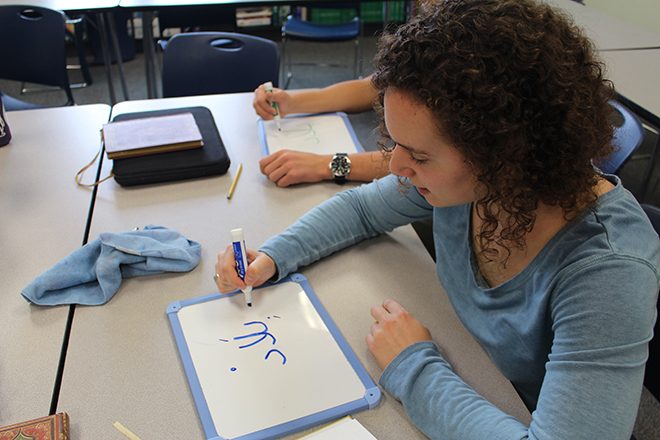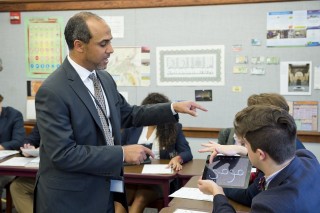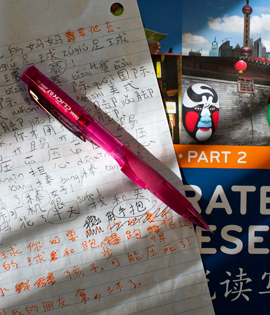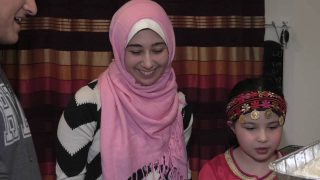Ninth grader Danielle Bejerano’s first language is Hebrew, her second language is English, and Arabic will now be her third.
Danielle is taking first-year Arabic at Gann, one of several world languages students can study in addition to Hebrew. Two levels of Arabic are currently offered, with plans to add additional classes in the coming years. “We learn so much in class, and it’s crazy how similar Hebrew and Arabic are,” says Danielle. As an Israeli, she is pleased that she is forging a relationship with Arab culture and marvels at its similarities to her own. “This is such a unique and amazing opportunity to study Arabic in high school.”
Teacher “Ustaaza” Lucy Thiboutot notes, “Knowledge of Arabic, which is spoken by 420 million people, and the official language in more than 22 countries, opens up access to a vast number of people and cultures.” The Arabic curriculum, like Gann’s other language programs, is as much about widening students’ perspectives as it is about creating fluent speakers. “We want to give them new tools through which to see and think about the world,” says Thiboutot.
The fact that Arabic is an official language of Israel is one of many reasons it is offered at Gann. “We want students to have a broad understanding of the Arab world and Arabic speakers,” says Thiboutot, who has a master’s degree in Arab Studies from Georgetown and studied Arabic in Syria. “We want students to be able to make connections with Arabic speakers in Israel and around the world.”
Building international connections permeates Gann’s language offerings, and a majority of Gann students are actively seeking those connections. All students study at least one world language (Hebrew), and more than 50% learn two or more. Meanwhile, according to the National K-12 Foreign Language Enrollment Survey Report, only 20% of American students study even one foreign language.



